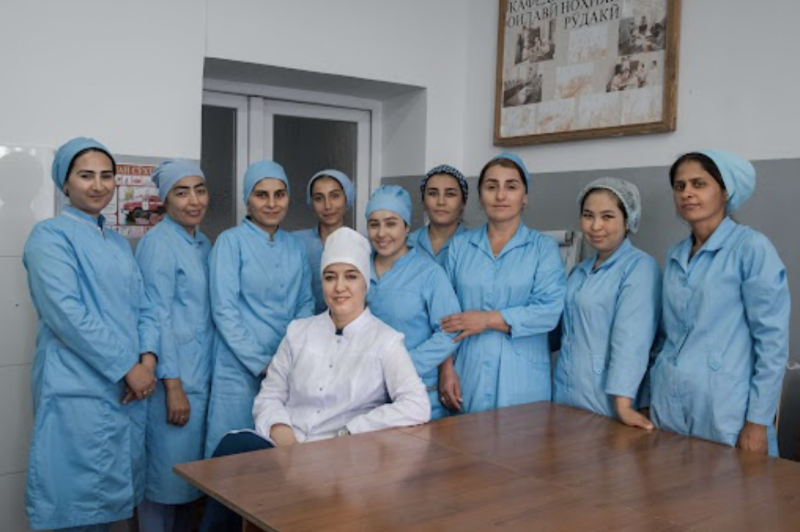
Tajikistan paves the way for universal health coverage with strong primary health care
Health System & UHC
European Region
Tajikistan
Tajikistan’s long-term investment in primary health care (PHC) has significantly reduced maternal and infant mortality rates and the prevalence of various diseases, showcasing a successful journey towards universal health coverage (UHC). As Tajikistan continues to navigate healthcare reform, the emphasis on primary health care remains at the core of its pursuit for a healthier future for its population.
Rafoat Sanginova is a family nurse and over her 34-year career she has witnessed huge improvements in people’s health.
“In 1989, when I began my career as a nurse, home births were common, and pregnant women rarely registered at health facilities. There was a high mortality rate among women and children," recalls Rafoat.
Today, much has changed as Tajikistan has oriented its health strategy towards a PHC approach, bringing health care closer to communities. The health facility where Rafoat works is now a model of this PHC approach, offering a range of services in one place close to where people live, including dentistry, non-communicable diseases, and child and maternal health.
“I came to Rudaki District Centre to see my doctor. The doctor helped me. They have all the necessary facilities,” says Safarova Manija, a patient who benefits from local primary health care services.
Healthcare reforms
Tajikistan's journey towards healthcare reform has been marked by a steadfast commitment to improving its health system and ensuring the well-being of its population. Over 20 years ago, the Government of the Republic of Tajikistan adopted a PHC model based on family medicine and invested in PHC infrastructure and systems, as well as in training and supporting its health workforce.
In 2021, Tajikistan adopted the ‘Strategy on Healthcare of the Population of the Republic of Tajikistan for the period to 2030’ emphasizing a robust PHC component to accelerate healthcare reform and ensure comprehensive service delivery. Several reforms were implemented, including service delivery, financing, integration of vertical programmes, and strengthening the health workforce. The Government ensured strong inter-governmental coordination to develop PHC, including a Development Coordination Council with the main development partner for joint implementation of PHC. In 2022, 18 development partners and the Government of Tajikistan signed a Joint Statement on strengthening PHC.
WHO, through the UHC Partnership, has collaborated with the Government of Tajikistan since 2016 at multiple stages of policy development, design, and implementation of PHC. The UHC Partnership assists over 125 countries in accelerating progress to achieve UHC through funding provided by the European Union, the Grand Duchy of Luxembourg, Irish Aid, the French Ministry for Europe and Foreign Affairs, the Government of Japan - Ministry of Health, Labour and Welfare, the United Kingdom - Foreign, Commonwealth & Development Office, Belgium, Canada and Germany.